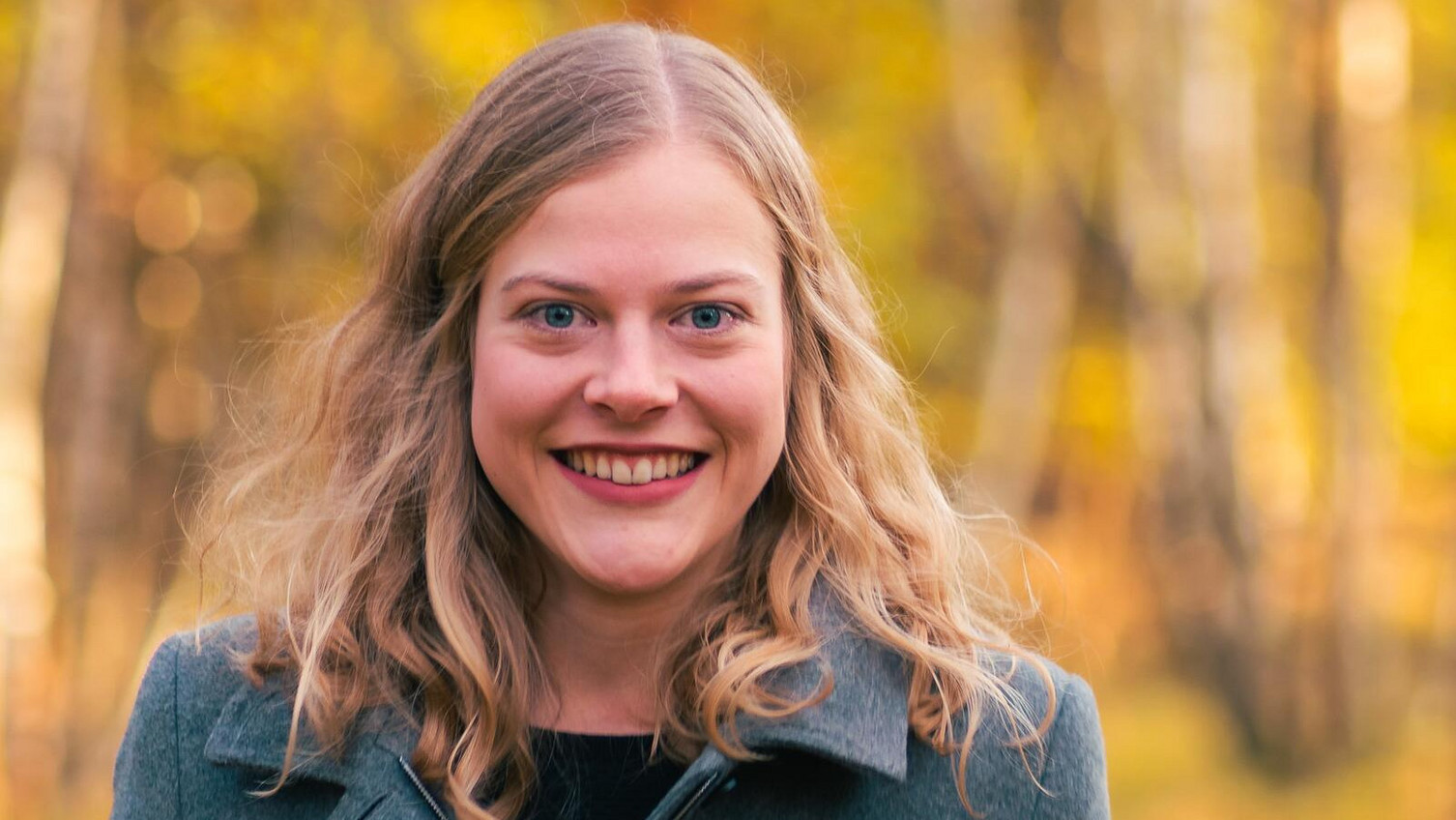Deutschlandstipendium: Franziska Alpen - For a Healthy Coexistence
2021-01-19 The 25-year-old is studying for a part-time Master's in Public Health at the Professional School. Besides her work in nursing research, she volunteers for young people from non-academic families. Now she is being supported with the Deutschlandstipendium herself.
During her work at the hospital, Franziska Alpen missed one thing above all: time. "I like explaining things and want to give the patients something to take away. Especially with chronic illnesses, you can do a lot for your own well-being." The Hamburg native completed a dual degree in nursing sciences. She worked at the university hospital as a health and nursing assistant and at the same time dealt with the technical background of nursing, quality management and psychological aspects. She completed her bachelor's degree a good two years ago and has since been working in a research project to improve medication management and health care for people with intellectual disabilities, which is scientifically accompanied by the Hamburg University of Applied Sciences (HAW). "For example, autistic people often have difficulties leaving their familiar surroundings. We are investigating how home visits by care experts can ensure medical care," explains Franziska Alpen. She also teaches communication and palliative care at the HAW.
Despite the exciting tasks, the 25-year-old will now devote herself to a new project. Starting in March, she will work in a Hamburg model project as a school health specialist: "Prevention is very important to me," she explains. That's why the Hamburg native also decided to continue her studies. "I always wanted to study at Leuphana, and now with the Master's in Public Health it's working out. I didn't find the programme in this form at any other university," says Franziska Alpen. The part-time Master in Public Health (MPH) offers academic continuing education that covers all aspects of professional and personal requirements in the public health field. In addition to acquiring comprehensive expertise in prevention and health promotion, the programme clearly focuses on teaching skills in health management. Furthermore, with the Lüneburg MPH Prevention and Health Promotion, students have the unique opportunity in Germany to specialise in one of three health science fields of action: Prevention and Health Promotion in Education and Training, Work and Organisation, and Digital Health. Franziska Alpen chose Education and Training. She is now in her second semester at the Professional School. She was able to apply her acquired knowledge right away in the job interview. "We were asked how a healthy nutrition concept can be established at a school. We had already discussed this in a seminar," says Franziska Alpen. She was convincing and got the job. Her Master's degree in Public Health helped her in yet another respect. "They were looking for someone who had both a bachelor's degree in nursing, but was also continuing her education in health sciences." The Hamburg resident had started the study programme to work at the interface of nursing and health promotion. Starting in spring, she will provide individual support to schoolchildren who suffer from epilepsy or diabetes, for example. But she will also develop healthy meal offers and network extracurricular offers for health promotion.
It was important for Franziska Alpen to be able to study while working. "I was already working during my first degree and wanted to continue doing so." For years, she has also been volunteering with the Studienkompass, a scholarship programme run by the Stiftung der Deutschen Wirtschaft. The programme is aimed at young people from non-academic households. "I was sponsored there myself as a student and the scholarship opened a lot of doors for me," she recalls. That's why she became a mentor herself and supported students in recognising their strengths, helped them choose a course of study and is now on the board of the Studienkompass alumni association. With this biography, she applied for the Deutschlandstipendium last summer. The public-private project in the field of education has been supporting talented students of all disciplines nationwide with 300 euros per month since 2011. The special feature: 150 euros are contributed by private sponsors such as companies, foundations and private individuals. The other half is paid by the federal government. Franziska Alpen is sponsored by the E. W. Kuhlmann Foundation. "For me, this means a real financial relief. Second jobs are no longer necessary. I can concentrate fully on the new job and my studies." Franziska Alpen will continue to be involved in the alumni association of the Studienkompass: "I don't see it as work. Rather, it is an enriching part of my free time.“
In addition to Franziska Alpen, two other people at Leuphana Professional School received a Germany Scholarship and will thus be supported with 300 euros for a total of 12 months.
Sponsors
The E.W. Kuhlmann Foundation supported two of the students with the Deutschlandstipendium at Leuphana in the class of 2019/20 and, with Franziska Alpen, even three since last October. Edith and Edmund Kuhlmann established their foundation in Hamburg in 1997. The foundation helps people to help themselves by providing financial support for their education so that they can soon enter professional life. For many years, the foundation's focus has therefore been on "Studien-Abschluss-Hilfe" (www.studien-abschluss-hilfe.de) and the "Rollendes Stipendium" (www.rollendes-stipendium.de). In addition, it supports "free tables" and support funds in Lüneburg and at other universities, cancer research, charitable associations and individuals in need of help. The founders' actions are guided by the principle: We do good so that it brings joy.

